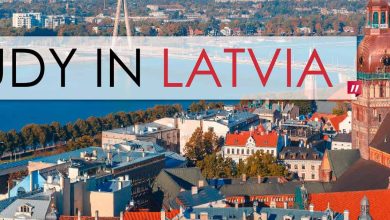Schools and Universities in Spain that Accept HND Certificates, Second Class and 3rd Class for Masters Degree Programs
Pursuing a master’s degree is a significant step in advancing one’s education and career prospects. However, for many students holding HND (Higher National Diploma) certificates, or those who have graduated with second or third-class honors, the journey seems daunting, especially when considering further studies abroad. Spain, known for its rich culture, beautiful landscapes, and prestigious educational institutions, offers a variety of opportunities for international students in this regard.
In this blog post, we’ll explore the schools and universities in Spain that accept HND certificates, second class, and third class for master’s degree programs, providing a beacon of hope for those aspiring to further their studies in this vibrant country.
Criteria for Admission into Master’s Programs
When considering furthering your education with a master’s degree in Spain, understanding the criteria for admission is crucial. The requirements may vary depending on the institution and the specific program of study. However, several common criteria can guide international students holding an HND (Higher National Diploma), second class, or third class degrees. Below is a comprehensive list to consider:
- Proof of English or Spanish Proficiency: Depending on the language of instruction of the chosen program, non-native speakers will need to provide evidence of proficiency in English (e.g., TOEFL, IELTS scores) or Spanish (e.g., DELE, SIELE scores). The required proficiency level might vary by program and institution.
- Motivation Letter: A well-crafted motivation letter explaining why you wish to pursue a master’s degree in your chosen field and why you are applying to a particular institution in Spain can significantly impact your application. This letter offers a chance to highlight how your background (including an HND, second class, or third class degree) has prepared you for the challenges of a master’s program.
- Letters of Recommendation: Most Spanish institutions require two or three letters of recommendation from academicians or professionals who can vouch for the applicant’s academic or professional capabilities and potential for success in a master’s program.
- CV or Resume: A detailed CV or resume showcasing your educational background, work experience, skills, and achievements can complement your academic credentials, especially for those with less traditional qualifications like an HND or a lower class degree.
Understanding and preparing for these criteria well in advance will enhance your application and improve your chances of gaining admission into a master’s program in Spain, regardless of your previous academic standing.
Schools in Spain that Accept HND Certificates, Second Class and 3rd Class for Masters Degree Programs
Spain offers a welcoming educational environment for international students with various academic backgrounds, including those with HND certificates, second-class, and third-class degrees looking to pursue master’s degrees. The country hosts a range of schools that recognize the value and potential of students from diverse academic experiences. Below are some notable schools in Spain that are known for their inclusive admission policies for master’s degree programs:
1) IE Business School
Located in Madrid, IE Business School is renowned for its innovative approach to business education. It has programs that consider applicants with HND certificates and lower-class degrees, especially if they have significant professional experience or demonstrate exceptional leadership potential.
2) ESADE Business School
ESADE, based in Barcelona, is another top-tier institution that offers various master’s programs in business, law, and management. The school looks beyond traditional academic qualifications, valuing the professional and personal experiences of applicants, including those with HND and lower-class degrees.
3) Universitat Pompeu Fabra (UPF)
Known for its research-intensive programs, UPF in Barcelona has several master’s degrees that are accessible to students with diverse academic backgrounds. Their focus is on the candidate’s overall profile, including professional experience and personal motivation.
4) Universidad Carlos III de Madrid (UC3M)
UC3M offers a wide range of master’s programs in engineering, social sciences, law, and humanities. The university is open to evaluating applicants with HND certificates and lower-class degrees, considering their entire academic and professional trajectory.
5) Polytechnic University of Catalonia (UPC)
Specializing in engineering, architecture, and technology programs, UPC in Barcelona welcomes international students with HND certificates and those who have graduated with second or third-class honors. Applicants must demonstrate their readiness and aptitude for the chosen master’s program through their application materials.
These schools represent just a snapshot of the diverse educational opportunities available in Spain for students with HND certificates, second-class, and third-class degrees. Prospective students are encouraged to directly contact the admissions departments of these schools for detailed information on specific entry requirements, application procedures, and how their unique backgrounds can enrich their chosen field of study.
Universities in Spain that Accept HND Certificates, Second Class and 3rd Class for Masters Degree Programs
Spain’s higher education landscape is welcoming to international students from various academic backgrounds, including those with HND certificates, second-class, and third-class degrees seeking to advance their studies with a master’s degree. Here are several universities in Spain renowned for their inclusive admission policies and commitment to diversity in their academic communities:
1) University of Barcelona (UB)
As one of the leading public universities in Spain, UB offers a range of master’s programs across disciplines such as the humanities, sciences, and health sciences. The university values the diverse perspectives and experiences that students with varied academic backgrounds bring to the campus.
2) Autonomous University of Madrid (UAM)
Known for its excellence in research and academic programs, UAM provides opportunities for students holding HND certificates or lower-class degrees to pursue master’s degrees, particularly in fields such as environmental sciences, biotechnology, and social sciences. Their selection process holistically assesses each applicant’s potential for academic and professional growth.
3) University of Valencia (UV)
With a wide array of master’s programs in the arts, sciences, and engineering, UV is another prestigious institution that considers applicants with diverse academic qualifications. They focus on the applicant’s overall profile, including relevant professional experience and personal achievements.
4) University of Granada (UGR)
UGR offers various master’s programs that are open to international students, including those with HND certificates and lower classifications in their undergraduate studies. The university has a strong international outlook and values the inclusion of students with different educational pathways.
5) University of Seville (US)
Emphasizing innovation and tradition, US has a rich array of master’s programs, especially in engineering, architecture, humanities, and health sciences. The university assesses applicants based on a comprehensive review of their academic records, professional experiences, and personal motivations.
These universities exemplify Spain’s commitment to providing quality education to students from around the globe, recognizing the value of diverse educational backgrounds. Prospective students with HND certificates, second-class, and third-class degrees are encouraged to explore these opportunities further by contacting the admissions departments of these universities for more detailed information on entry requirements and application processes.
FAQS
Can I do my Masters with HND certificate?
Yes, you can pursue a master’s degree with an HND certificate. However, the acceptance of HND certificates for master’s degree programs may vary depending on the institution and country. In the UK, for example, many universities accept HND certificates for admission into their master’s degree programs.
Can someone with third class go for Masters abroad?
Yes, it is possible to pursue a master’s degree abroad with a third class degree. However, the acceptance of third class degrees may vary depending on the institution and country. Some universities may require additional qualifications or work experience before admitting students with third class degrees.
Can I do Masters abroad with second class lower?
Yes, it is possible to pursue a master’s degree abroad with a second class lower degree. Many universities around the world consider second class lower degrees for admission into their master’s degree programs. However, the acceptance of second class lower degrees may vary depending on the institution and country.
Does Germany accept HND for Masters degree?
Germany does not generally accept HND certificates for admission into their master’s degree programs. However, some universities in Germany may consider HND certificates if the applicant has additional qualifications or work experience.
Which European countries accept HND for Masters?
Apart from the UK, several European countries accept HND certificates for admission into their master’s degree programs. These countries include Ireland, Cyprus, Greece, and Malta. However, the acceptance of HND certificates may vary depending on the institution and specific program. It is recommended to check with the university’s admission office for specific requirements and application procedures.
Conclusion
Spain is an attractive destination for students looking to study for a master’s degree with an HND certificate, second class or 3rd class grade. With its diverse and vibrant culture, excellent educational institutions, and diverse range of programs, Spain has something to offer for everyone. In conclusion, students should carefully research their options and ensure that the program they are interested in is a good fit for them. They should also consider factors like location, cost of living, and language requirements when making their decision. With careful planning, students can find the perfect program for them in Spain.








